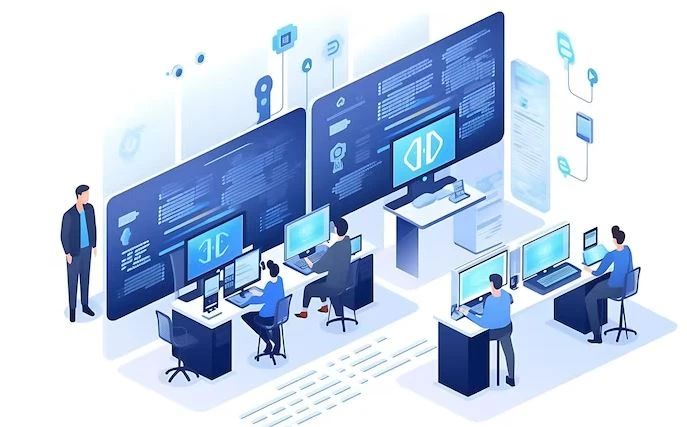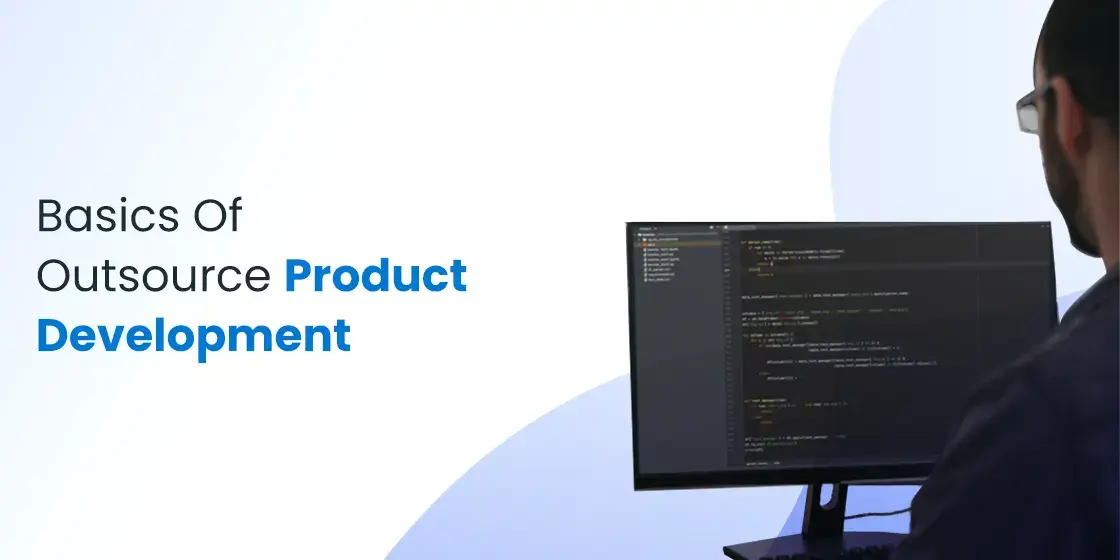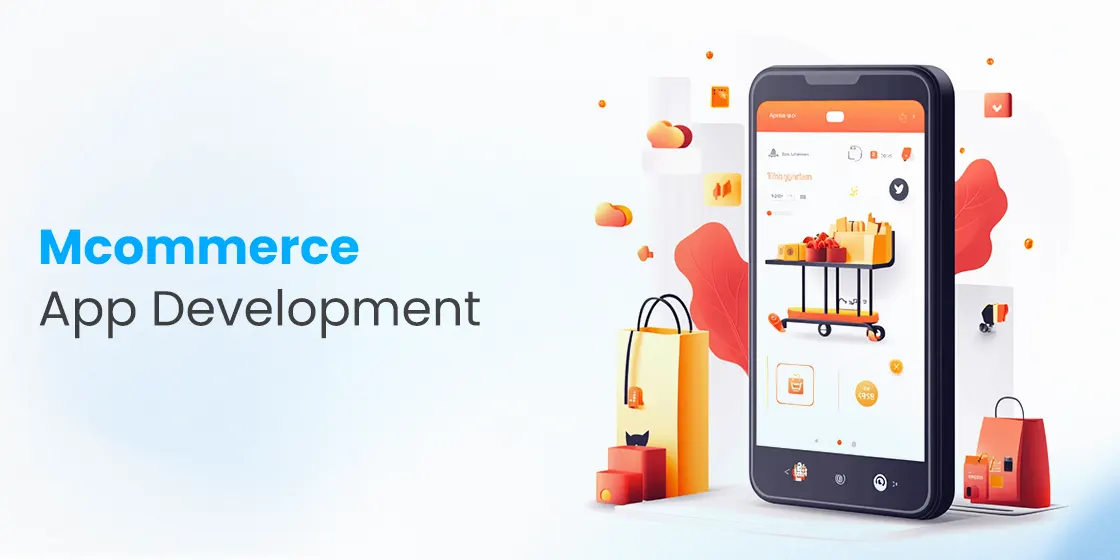Table of Content
Learn How to Outsource Product Development Smartly
Digitization is quickly becoming a key demand for many businesses. Yet, most of them are unable to achieve it due to having shortage of technical resources. The nature of their work does not allow them to have a separate IT team, as it can exponentially increase their operational cost over the time. This is where the option of getting software outsourcing services comes into play. It is a unique model that allows you to delegate product development to external teams that are more advanced and skilled in this area. Many startups are specially interested in this model, as they want to know how to outsource product development to IT agencies that are more experienced than them in the software industry.
By opting this approach, you get plenty of benefits as a non-technical business or organization. It is the process that runs outside your organization, giving you no headache to continuously look into different things. It is an understood fact that every business do not functions with a dedicated IT team. However, they require a product that can facilitate their customers over the internet. This is one of those things that should be dealt with smartly by hiring an external agency on temporary basis. This company takes care of the given project, and the stakeholders continue to run their business as usual.
But, this outsourcing process requires a complete thought process before finalizing or hiring any IT vendor. In this blog, we will discuss about that in detail, so that every stakeholder can understand how to outsource product development to external vendors properly. It will enlist some key tips that will help them to move forward in the outsourcing process without making any major mistake.
Let us first start from the basics, understanding what is product development outsourcing and why companies are increasingly opting it to manage/lower their workload efficiently.
What is Product Development Outsourcing?

Product development outsourcing is an important concept that should be understood by the companies properly. It comes handy for those that are non-technical or have limited resources to go for product development. Basically, product outsourcing gives you the opportunity to take services of external IT agencies in the development of any in-house project. This demand arises when your internal resources are not efficient enough to build software products on their own. They do require assistance from the professional agencies, which is where the option of product developing outsourcing comes into play.
With the help of product development outsourcing, companies do not have to worry about hiring any internal resource for the development of software solutions. These things will be managed by the third-party IT services provider that are engaged with the stakeholders on specific projects. Nowadays, many small businesses and startups prefer to outsource product development due to this very fact. They know how difficult product development can prove to be for them because of various underlying deficiencies. That is why they go for the outsourcing option to build everything professionally by the expert hands.
Why Outsourcing Product Development is Becoming Popular?

The fast rising demand of product software development is seen as a new digitalization trend in the commercial industry. However, it is largely pursued by those who are technically expert in software development, or at least have a team to do it internally. Now, there are many companies working in the market that are not technical. They do lack expertise in web and mobile application development, which is indeed a cause of concern for them. But, this is not a big issue now, as software outsourcing has given them a full opportunity to fill up this gap adequately.
With the help of outsourcing services, these companies can hire external resources for a limited period of time. Saying it the other way around, the internal projects could be outsourced to the external IT teams having vast expertise in the software development. That is how non-tech companies can also build a fully functional software product without indulging in any manual work. This trend is rising fast in the market, as more and more companies are opting this model due to its great benefits.
How to Outsource Product Development?

Outsourcing product development to any external agency requires you to follow some basic rules. Unfortunately, many people do not know about these tips. They try to randomly select any company from the market without knowing its background and expertise at all. This is certainly a wrong approach that always comes up with adverse repercussions.
If you are also one those stakeholders who do not know how to outsource product development to any reputed software agency, take a look at the tips defined below. It will clear your concepts, allowing you to understand the criteria that should be followed before hiring any third-party team for product development. Let’s take a detailed look at them below.
Research Comprehensively
Market research is a vital step before outsourcing any project to a third-party provider. It helps to identify the best fit for the project’s goals, budget, timeline, and quality standards. Research also helps to avoid potential risks, such as legal issues, communication gaps, cultural differences, and hidden costs. As a stakeholder, you are always required to complete the research before finalizing any IT vendor from the market. If you will try to hire anybody randomly, then you project would come under high stakes of failure.
One of the main aspects of research is to evaluate the provider’s expertise and experience in the relevant domain. This can be done by reviewing their portfolio, testimonials, case studies, and references. A good provider should have a proven track record of delivering similar projects successfully and meeting the client’s expectations.
Another aspect of research is to compare the provider’s pricing and terms with other options in the market. This can help to find the most cost-effective and flexible solution for the project. It is important to consider not only the upfront fees, but also the ongoing maintenance, support, and quality assurance costs. A clear and detailed contract should be signed to avoid any misunderstandings or disputes later on.
Analyze Company Background
Before selecting any company for software outsourcing, you need to first look at its complete background. It is one of those things that is often ignored by the people. They simply don’t care to look at the reviews or suggestions about the IT vendors given on the internet. Basically, the lacking in research part leads to this problem. People who have done the research precisely know which company is better and which should be avoided. The knowledge of their background plays a big role in understanding their expertise in software development, hence it is recommended to always look at it properly.
Looking at the company background before selecting it for project outsourcing can help the client make an informed decision based on facts and evidence. It can also help the client avoid potential risks, challenges and conflicts that may arise from working with an incompatible or unprofessional company. By doing a thorough research and analysis of the company background, the client can find the best match for their project needs and goals.
In simple words, looking at the company background is a crucial step that should not be skipped or overlooked. It can provide valuable insights into the company’s strengths, weaknesses, opportunities and threats. It can also help the client establish trust, confidence and rapport with the company. Therefore, it is important to look at the company background before selecting it for project outsourcing.
Set Project Goals
Setting clear and well-defined goals is a fundamental step when outsourcing a software project, as it provides a roadmap for both your organization and the outsourcing partner. Start by clearly articulating the objectives of the software project. What problem are you trying to solve or what opportunity are you trying to seize? Be specific about the desired outcomes and the impact the software should have on your organization or end-users. For example, if you’re developing a mobile app, state whether the goal is to increase user engagement, generate revenue, or streamline internal processes. Ensure that these objectives align with your business strategy and that they are measurable.
To make your goals effective and actionable, follow the SMART criteria – Specific, Measurable, Achievable, Relevant, and Time-bound. Specific goals leave no room for ambiguity. Measurable goals allow you to track progress and success. Achievable goals ensure that they are within the capabilities of your outsourcing partner and align with your budget. Relevant goals should directly contribute to your business objectives.
Finally, time-bound goals set clear deadlines for when each goal should be achieved. For instance, a SMART goal might be, “Develop a software application that increases user engagement by 20% within six months.” This level of detail ensures that everyone involved has a shared understanding of the project’s purpose and the criteria for success.
Define the Quotation
Defining the quotation for IT project outsourcing is a critical step in ensuring a successful collaboration between your organization and the outsourcing partner. The process involves several key considerations. Firstly, clearly articulate the project scope and objectives. This includes detailing the functionality, features, and requirements of the software. Provide a comprehensive project brief that outlines the purpose of the software, target audience, expected outcomes, and any specific technical specifications.
Secondly, specify the terms and conditions of the contract. This should cover the timeline for project completion, payment terms, intellectual property rights, and any confidentiality or non-disclosure agreements. Be transparent about how changes to the project scope will be managed and their associated costs. Make sure to address any legal or regulatory requirements that may apply to the project.
Lastly, assess the pricing structure. Whether you opt for a fixed-price, time and materials, or a hybrid model, ensure that the quotation clearly outlines the cost breakdown, including any additional charges that may apply. It’s important to have a mechanism in place for handling unforeseen circumstances or scope changes, which may impact the final cost. Additionally, it’s advisable to compare quotations from multiple outsourcing providers to ensure you are getting competitive rates and a suitable partner for your project.
Set a Precise Deadline
Setting deadlines when outsourcing a software project is essential to ensure timely delivery and project success. Effective deadline management requires careful planning and clear communication. Firstly, establish a realistic and well-defined project timeline. This involves breaking the project down into smaller tasks and determining the estimated duration for each task. Consider potential dependencies between tasks and allocate buffer time for unforeseen delays. It’s crucial to involve the outsourcing team in this planning process, as they can provide valuable input on the feasibility of the timeline.
Secondly, communicate the deadlines clearly to the outsourcing partner. Use written documentation to specify the agreed-upon timeline, milestones, and project deliverables. Make sure both parties have a shared understanding of the deadlines and any consequences for missing them. Regularly monitor and track progress to identify any issues or potential delays, allowing you to take proactive measures if necessary.
Afterwards, consider the flexibility of deadlines. While it’s crucial to set specific dates for milestones and project completion, be open to adjustments in case of unexpected issues or changes in project’s functional requirements. Clearly define the process for change management and ensure that both parties are aware of how changes to the project scope or deadlines will be handled. Effective communication and collaboration between your organization and the outsourcing partner are key to successfully managing project deadlines and achieving the desired outcomes.
Benefits of Outsourcing Product Development with BariTechSol
BariTechSol offers a plethora of software solutions to take your business forward in the digital age. If you are struggling to build a software product internally, then BariTechSol is the right destination for you. Our software outsourcing solutions are tailor-made for those businesses that are struggling with internal resources, or do not have enough time to manage projects by themselves.
By outsourcing your product development to us, you get plenty of benefits such as having dedicated teams, round the clock support and more others. This is what makes BariTechSol a bit different from others, as we always pay attention to build software products as per the latest standards.
Read Next in Line:
Final Words
That takes us to the end of this blog in which we have discussed how to outsource product development efficiently. It is one of those things that might look easy to everyone, but is indeed a very tricky process. As a business stakeholder, you need to keep an eye on different things before making any decision. You need to analyze various traits of the vendors before finalizing anyone for the job. This article is precisely written for those who do not know which things should be kept in mind while looking for a reliable IT vendor for software outsourcing.
If you are also one of them who is looking to get connected with a professional company that can develop quality software products, give us a quick call today. We will help you to develop state of the art software products, rightly as per the given demands.
Empower your digital initiatives with BariTechSol, a premier custom software development company. Our skilled team tailors cutting-edge solutions to your unique needs. Elevate your tech experience and stay ahead in the digital realm. Partner with BaritechSol and code the success of your next big idea.


